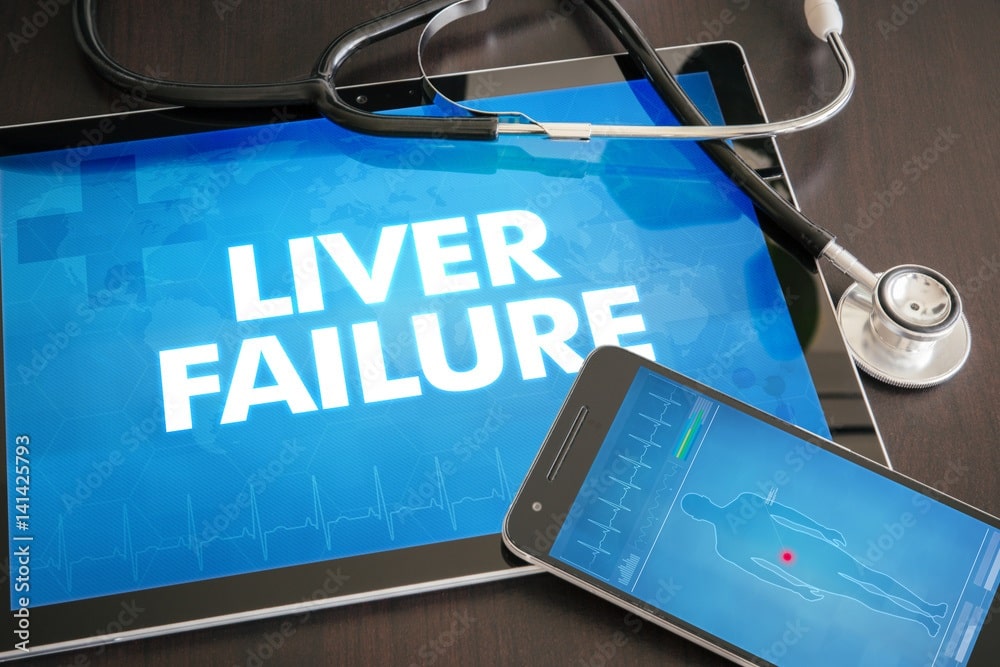Liver failure is a result of almost 2% of all deaths in America. Photo courtesy Adobe Stock photos.
The National Institutes of Health (NIH) has revealed in a report that overdose of the painkiller acetaminophen is now the leading cause of liver failure in the United States.
“Acetaminophen is by far the No. 1 cause of acute liver failure in the U.S.,” said Dr. Nima Majlesi, the director of medical toxicity at Staten Island University Hospital in New York. She cited the NIH’s report that mentioned how the drug caused 500 deaths, 56,000 emergency department visits and 2,600 hospitalizations every year due to complications from its toxicity.
According to the NIH, the majority of these cases originate from unintentional chronic overdoses that often stem from the misuse of medications such as Percocet, Vicodin and Tylenol PM. Individuals unknowingly put themselves at risk by consuming multiple products containing acetaminophen without recognizing the danger of high daily doses.
While acetaminophen is effective in managing pain and fever when taken as directed, high doses can lead to potentially irreversible liver damage. When the liver is unable to keep up with the breakdown process, toxic byproducts accumulate and cause harm to liver cells.
One of the factors contributing to the general issue is the extensive availability of acetaminophen under different brand names – including paracetamol. Acetaminophen is also used as an ingredient in numerous over-the-counter and prescription medications, with Majlesi highlighting its presence in approximately 600 different products.
Acetaminophen also linked to other complications
Besides being the leading cause of liver failure, several studies show that acetaminophen may be extremely dangerous and lead to other complications, even in children.
In a study published in the American Journal of Epidemiology in 2004, Dr. Roland Walter, along with his colleagues at the University of Washington, conducted the Vitamins and Lifestyle (VITAL) study with 65,000 participants between the ages of 50 and 76. Based on the results, participants who took acetaminophen at least four days a week for four years were twice as likely to develop blood cancers than people who took less or none of the drug.
“We found that high use of acetaminophen, one of the most frequently used medications worldwide, was associated with an almost twofold increased risk of incident hematologic malignancies,” said Walter, referring to non-Hodgkin lymphomas, plasma cell disorders, and myeloid neoplasms. “Acetaminophen use on the majority of the days over many years appears to be associated with this new adverse effect.”
In another study published in JAMA Pediatrics several years ago, acetaminophen and hyperkinetic disorder, a severe form of attention-deficit/hyperactivity disorder (ADHD), was linked to 64,000 children participants. Additionally, mothers who took acetaminophen while pregnant have 13 percent higher chances of having children with ADHD and 37 percent more chances of having children with hyperkinetic disorder.
“The epidemiologic association between acetaminophen use and asthma prevalence and severity in children and adults is well established,” wrote Dr. John T. McBride in a third study published in Pediatrics back in December 2011. “Until future studies document the safety of this drug, children with asthma or at risk for asthma should avoid the use of acetaminophen.”
McBride doubled down on his comment about that topic in March this year. “Every study shows the association between acetaminophen and asthma. It seems to me it’s time to tell people about this,” he said.

If you want to continue to see independent thought and reports please “like”, comment, share with a friend, and donate to support The Standard on this page to assure the continued availability of news that is ignored too often by the dominant media.




 RSS - Posts
RSS - Posts